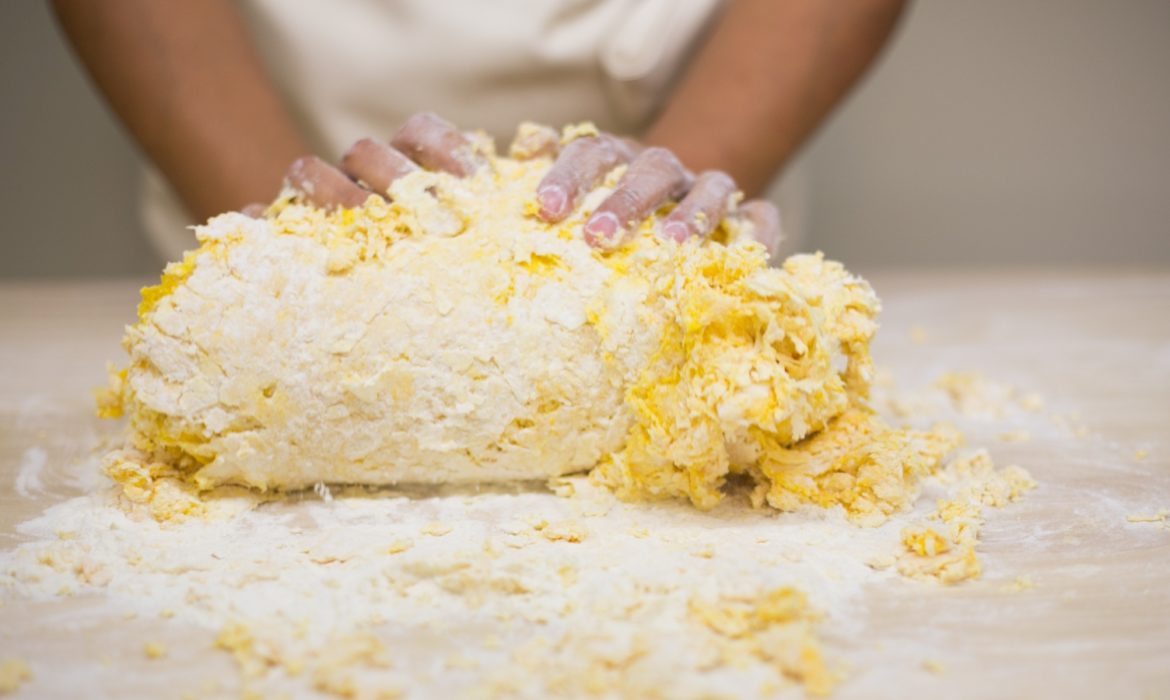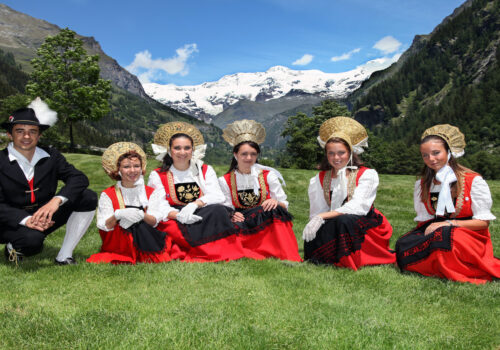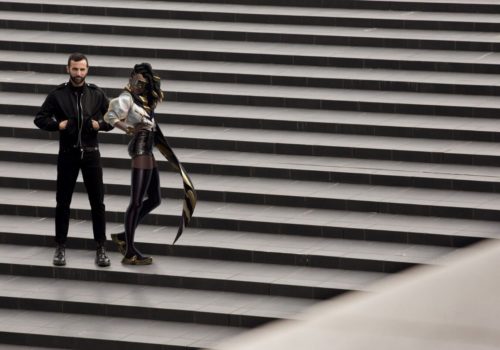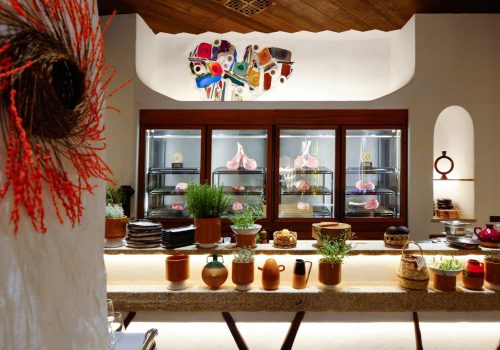The project also includes guidelines for the architecture developed by Ciclostile, the firm from Bologna
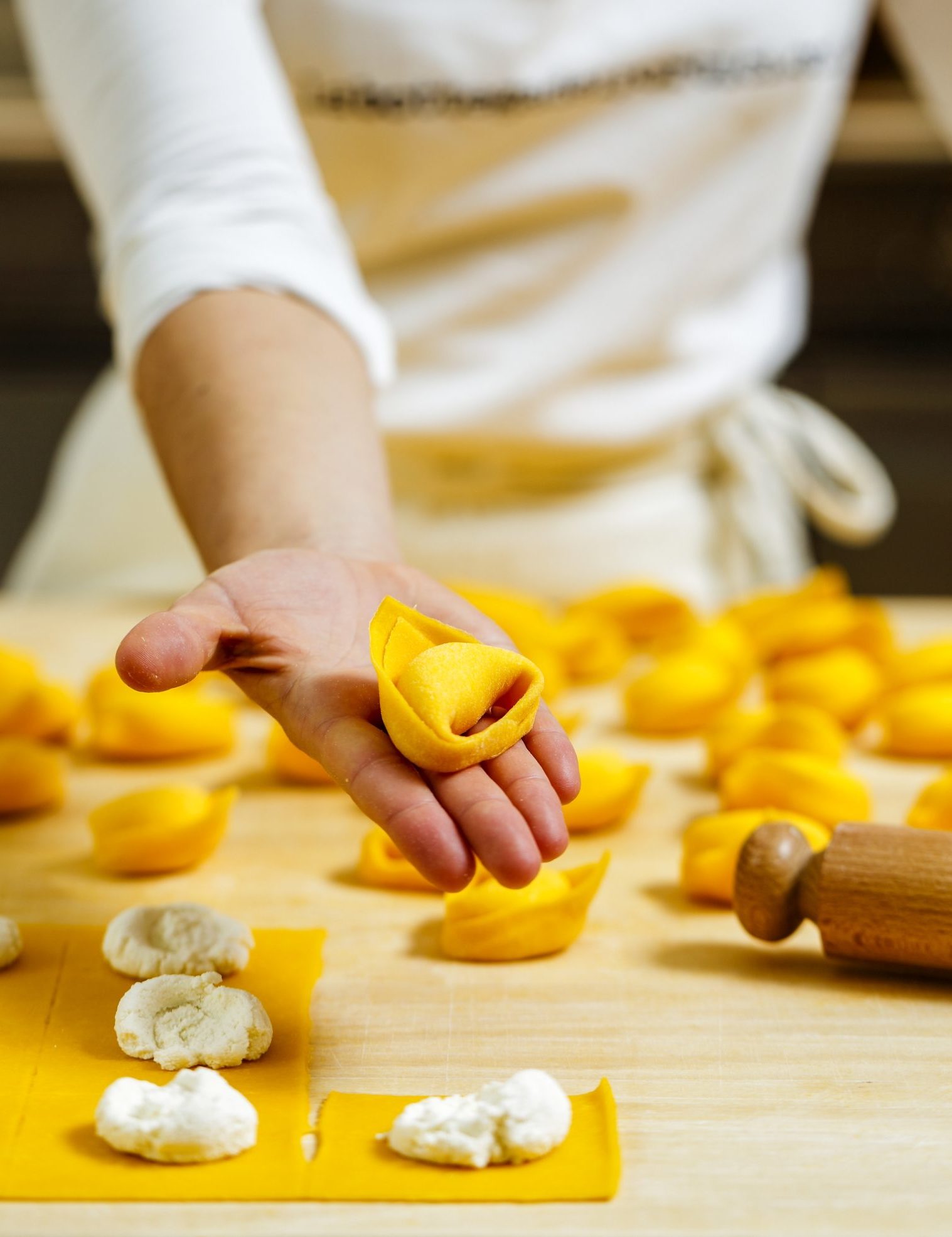
© Fabio Bascetta
“Bottega Portici” is the format that from Bologna, where it boasts two venues, is moving outwards to take the cult of fresh hand-made pasta across Italy, focusing its mission on a lifestyle that integrates tradition and innovation. Now open in the Roma Termini train station, at the Franciacorta Outlet Village in Brescia, the Milanofiori shopping centre, the I Petali in Reggio Emilia (some of these are franchises), the project « (…) is part of the strategy for growth and diversification in the Hospitality&Food sector of the Imperial industrial group, a leader in Fast Fashion Made in Italy», explains Riccardo Bacchi Reggiani, the CEO of “Bottega Portici” who came up with the concept for the format.
The experience began in Bologna with the success of the “Ristorante I Portici” (inside the hotel of the same name) which offered gourmet cuisine and won a Michelin star in 2013. «These premises were the basis for the idea of investing in something new which could bring the quality of Italian food products to a contemporary formula affordable to everyone. Thus in 2014 the food & beverage team developed the format».
The vision for the project is very clear: to take the quality of products Made in Italy around the world.
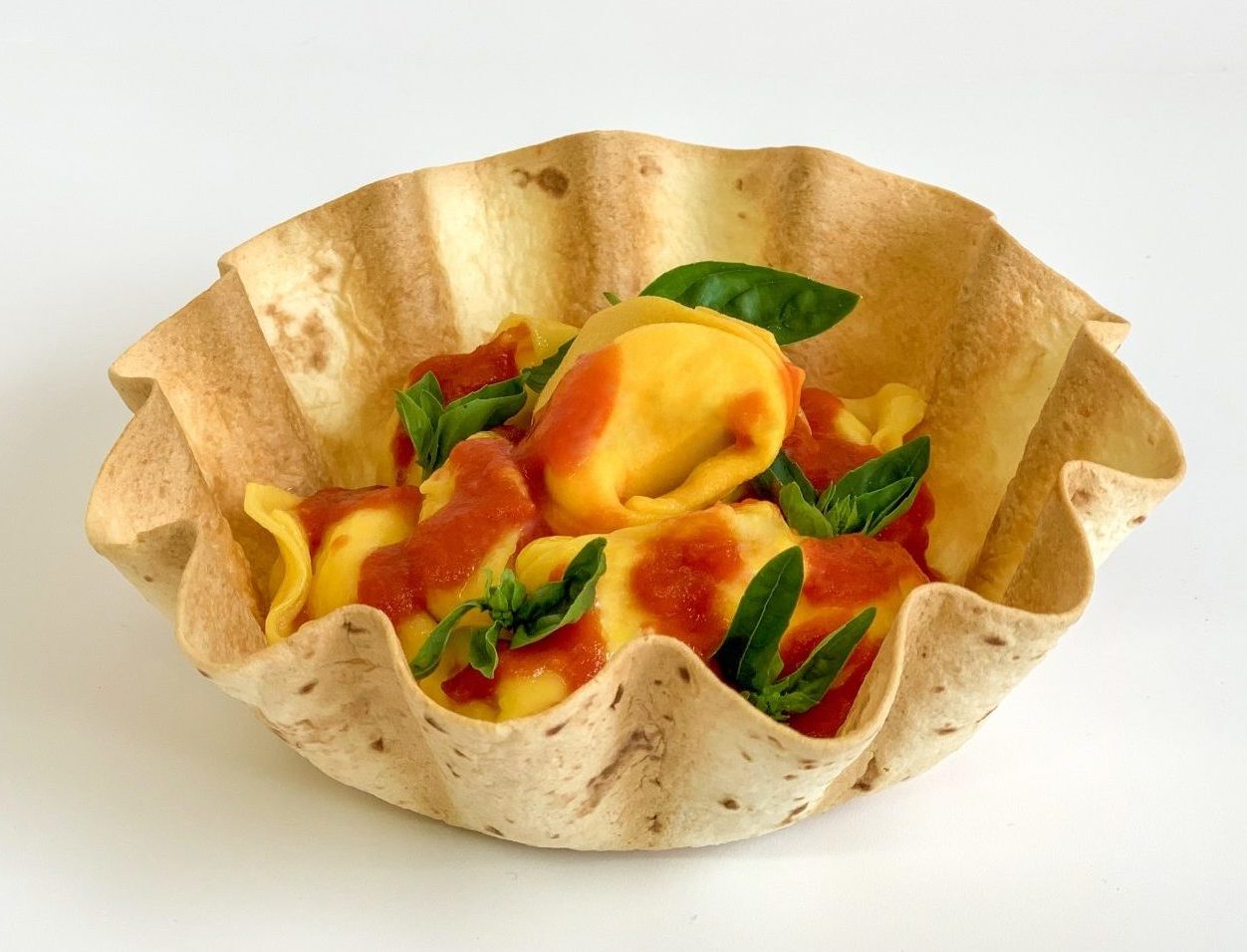
© Fabio Bascetta
The “Bottega Portici” format for Italian “casual food”, which has been tested and can be reproduced, brings the ancient art of fresh pasta to center stage: it is cooked in full view by the chefs, and can be eaten espresso directly in the venue or taken away.
Without compromising the quality of the raw materials and working towards sustainability.
«All of the packaging for Bottega Portici, from the salad containers to the cutlery and the pasta cups is made of material that can be 100% composted – continues Riccardo Bacchi Reggiani. We have completely eliminated disposable plastic, we don’t waste water to wash the dishes and we don’t use detergent that pollutes. On the other hand, from a management point of view, this is a choice that optimizes costs and processes. Again, with a view to a plastic-free philosophy, every store has a water corner where customers can fill up independently on natural or carbonated water, at the cost of a glass of water».
And for take-away customers, there are water bottles made of biodegradable material. Before beginning their jobs, the cooks and the sfogline, the pasta makers, as well as the store managers attend the “Bottega Portici Academy” the company’s training facility that can convey the brand’s know-how to the staff. Where, among other things, expert professionals and Michelin-star chefs help to experiment with new recipes and product lines.

© Fabio Bascetta
The format is quite successful, and so the goal is to open new venues not only in Italy, but in the rest of Europe.
«Thanks to a well-planned business model and the structured know-how that links Bottega Portici to Italian quality and hospitality. The franchisee can count on the headquarters and offices that, from the Academy to procurement, from marketing to style, from logistics to administration, support the process to open new sales points and guarantee constant assistance».
The architecture of the stores? It also follows a format, a series of guidelines developed by the designers who are very focused on the quality of the space to create an emotional atmosphere as part of the full experience. The last four were designed by Ciclostile Architettura, the architectural firm founded in Bologna by Giacomo Beccari, Gaia Calamosca and Alessandro Miti. Conceived in steel and Corian, the kitchen is a white ethereal open space, custom-designed for the staff with optimized work spaces.
The spaces for dining are reminiscent of domestic spaces and are arranged to reflect the ritual of conviviality: based on the number of diners, one can find place at the classic tables, on long spacious tables with benches, or in the dining rooms that invite customers to relax and eat more comfortably. All of these spaces feature oak wood, with the warm shades alternating with the black Fenix countertops, the steel mesh and profiles. «The proper dose of tradition, innovation, functionality and aesthetics are the ingredients that create a warm and comfortable environment», explain the designers.
© ALL RIGHTS RESERVED
translation by Olga Barmine


